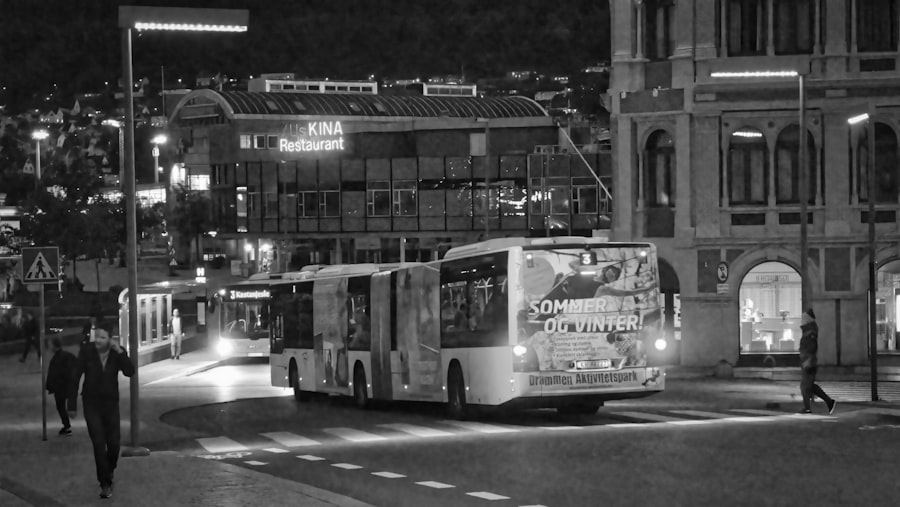Vinmonopolet, the state-owned enterprise responsible for the retail sale of alcoholic beverages in Norway, stands as a unique institution within the country’s regulatory framework. Established in 1922, it operates under strict government oversight, aiming to control the consumption of alcohol and mitigate the social issues associated with excessive drinking. For those unfamiliar with Norway’s approach to alcohol sales, Vinmonopolet may seem like an anomaly, but it is a reflection of the nation’s commitment to public health and safety.
The organisation not only regulates the sale of alcohol but also plays a significant role in shaping the cultural landscape surrounding drinking in Norway. For expatriates and newcomers to Norway, understanding Vinmonopolet is essential for navigating the complexities of alcohol purchase and consumption. The Norway Relocation Group can assist individuals in acclimatising to these regulations, providing insights into local customs and practices.
By offering guidance on how to navigate the intricacies of Vinmonopolet, the group ensures that newcomers can enjoy their experience in Norway while adhering to the country’s laws. This support is invaluable for those looking to integrate into Norwegian society, where alcohol consumption is often intertwined with social gatherings and cultural events. Plan your relocation with confidence. Book a personal meeting with the Norway Relocation Group today.
Summary
- Vinmonopolet is the state-owned alcohol retailer in Norway, responsible for the sale of alcoholic beverages with an alcohol content higher than 4.75% by volume.
- Alcohol regulation in Norway has a long history, with strict laws and regulations dating back to the early 20th century.
- Vinmonopolet plays a crucial role in the Norwegian alcohol market by ensuring responsible sales and distribution of alcoholic beverages.
- Limited access to alcohol in Norway presents challenges for consumers, particularly those living in remote areas with few Vinmonopolet outlets.
- High prices of alcohol in Norway have a significant impact on purchasing habits, leading to lower consumption and a focus on quality over quantity.
The History of Alcohol Regulation in Norway
The history of alcohol regulation in Norway is deeply rooted in the country’s social and political landscape. The early 20th century saw a growing concern over the detrimental effects of alcohol on society, leading to a temperance movement that gained significant traction. In response to these concerns, the Norwegian government implemented a series of measures aimed at controlling alcohol consumption, culminating in the establishment of Vinmonopolet in 1922.
This marked a pivotal moment in Norway’s approach to alcohol, as it shifted from a largely unregulated market to one governed by state control. Over the decades, the regulations surrounding alcohol have evolved, reflecting changing societal attitudes and public health priorities. The introduction of stricter laws during the 1930s and 1940s aimed to curb excessive drinking, particularly during and after World War
The Role of Vinmonopolet in the Norwegian Alcohol Market

Vinmonopolet serves as a central player in Norway’s alcohol market, operating a network of retail outlets across the country. With a mandate to promote responsible drinking, it restricts sales to individuals over the age of 18 and enforces strict limits on the types and quantities of alcohol that can be purchased. This controlled environment aims to reduce the risks associated with alcohol consumption while ensuring that products are available for those who wish to partake responsibly.
In addition to its retail operations, Vinmonopolet also plays an educational role by providing information about responsible drinking and the effects of alcohol on health. The organisation collaborates with various stakeholders, including health authorities and community organisations, to promote awareness and understanding of alcohol-related issues. For newcomers to Norway, familiarising themselves with Vinmonopolet’s role can help them navigate their own consumption habits while respecting local customs and regulations.
The Challenges of Limited Access to Alcohol
While Vinmonopolet’s regulations aim to promote responsible drinking, they also present challenges for consumers seeking access to alcoholic beverages. The limited hours of operation—typically from 10 am to 6 pm on weekdays and 10 am to 3 pm on Saturdays—can be inconvenient for those with busy schedules. Additionally, the restricted range of products available at Vinmonopolet stores may leave some consumers feeling frustrated, particularly if they are searching for specific brands or types of alcohol.
Moreover, the limited access can lead to unintended consequences, such as increased demand for illegal or unregulated sources of alcohol. Some individuals may resort to purchasing from private sellers or engaging in cross-border shopping to obtain their preferred beverages. This not only undermines the goals of responsible consumption but also poses risks related to quality and safety.
For expatriates navigating these challenges, understanding the nuances of Vinmonopolet’s operations is essential for making informed choices about their alcohol purchases.
The Impact of High Prices on Alcohol Purchases
One of the most notable aspects of Vinmonopolet’s operations is its pricing structure, which is significantly higher than that found in many other countries. This pricing strategy is intentional, designed to discourage excessive consumption and promote responsible drinking habits among Norwegians. While this approach aligns with public health objectives, it can also create financial strain for consumers who wish to enjoy alcoholic beverages.
The high prices at Vinmonopolet can lead some individuals to reconsider their purchasing habits or seek alternatives outside the regulated market. For expatriates unfamiliar with these costs, it may come as a shock when they first encounter the price tags on their favourite drinks. This financial barrier can impact social interactions as well; gatherings that might typically involve sharing drinks can become more costly, leading individuals to limit their participation or seek out less expensive options.
The Influence of Strict Alcohol Advertising Regulations

In addition to its control over sales, Vinmonopolet operates within a framework of strict advertising regulations that govern how alcoholic beverages can be marketed in Norway. These regulations are designed to minimise exposure to alcohol advertising, particularly among young people, thereby reducing the likelihood of developing unhealthy drinking habits. As a result, consumers may find that they encounter fewer advertisements for alcoholic products compared to other countries.
This lack of advertising can create a unique environment where word-of-mouth recommendations and personal experiences play a more significant role in shaping consumer preferences. For newcomers to Norway, this means that discovering new beverages often relies on social interactions rather than traditional marketing channels. Understanding this aspect of Norwegian culture can enhance one’s experience as they explore local drinking customs and engage with fellow residents.
The Cultural and Social Implications of Alcohol Regulation
The regulation of alcohol in Norway has profound cultural and social implications that extend beyond mere consumption patterns. Alcohol is often intertwined with social gatherings, celebrations, and cultural events; thus, how it is regulated influences societal norms surrounding drinking. In many cases, Norwegians view drinking as a communal activity rather than an individual pursuit, which can foster a sense of camaraderie among friends and family.
However, the strict regulations imposed by Vinmonopolet can also create a sense of exclusivity around alcohol consumption. For some individuals, particularly those from cultures with more liberal attitudes towards drinking, adapting to these norms may pose challenges. The Norway Relocation Group can provide valuable insights into these cultural dynamics, helping newcomers understand how to navigate social situations involving alcohol while respecting local customs.
The Debate Surrounding Vinmonopolet’s Monopoly
The existence of Vinmonopolet as a monopoly in the Norwegian alcohol market has sparked ongoing debates about its effectiveness and necessity. Proponents argue that it plays a crucial role in promoting public health by controlling access and encouraging responsible consumption. They contend that without such regulation, Norway could face increased rates of alcohol-related harm and social issues.
Conversely, critics argue that the monopoly stifles competition and limits consumer choice. They advocate for a more liberalised market that would allow private retailers to operate alongside Vinmonopolet, potentially leading to lower prices and greater variety for consumers. This debate reflects broader discussions about the balance between public health objectives and individual freedoms—a topic that resonates deeply within Norwegian society.
Alternative Options for Purchasing Alcohol in Norway
While Vinmonopolet remains the primary source for purchasing alcoholic beverages in Norway, there are alternative options available for consumers seeking variety or convenience. One such option is cross-border shopping; many Norwegians take advantage of proximity to neighbouring countries like Sweden or Denmark, where prices are often significantly lower due to different regulatory frameworks. Additionally, some individuals may choose to explore local breweries or distilleries that offer unique products not found at Vinmonopolet.
These establishments often provide tastings and tours, allowing consumers to engage more deeply with the production process while enjoying locally crafted beverages. For newcomers looking to expand their horizons beyond traditional retail options, these alternatives can enhance their experience in Norway.
The Future of Alcohol Regulation in Norway
As societal attitudes towards alcohol continue to evolve, so too will the landscape of alcohol regulation in Norway. Discussions surrounding potential reforms are ongoing, with some advocating for changes that would allow greater flexibility within the market while still prioritising public health objectives. The challenge lies in finding a balance that addresses both consumer desires for choice and variety while maintaining safeguards against excessive consumption.
The future may also see increased emphasis on education and awareness campaigns aimed at promoting responsible drinking habits among younger generations. As new trends emerge within the global alcohol market—such as low-alcohol or non-alcoholic alternatives—Norway may adapt its regulatory framework accordingly to reflect these changes while still prioritising public health.
Navigating the Challenges of Buying Alcohol in Norway
Navigating the complexities of buying alcohol in Norway requires an understanding of both Vinmonopolet’s regulations and the broader cultural context surrounding drinking in the country. While challenges such as limited access and high prices may pose obstacles for consumers, there are also opportunities for exploration and engagement with local customs. For newcomers seeking support during this transition, the Norway Relocation Group offers invaluable resources and guidance tailored to individual needs.
By providing insights into local practices and helping individuals acclimatise to Norwegian society, they ensure that newcomers can enjoy their experience while respecting local laws. As individuals navigate this unique landscape, they may also consider enrolling in Norwegian courses at the NLS Norwegian Language School in Oslo. Learning the language not only enhances communication but also deepens cultural understanding—an essential aspect when engaging with local customs surrounding alcohol consumption.
Ultimately, embracing these challenges can lead to richer experiences and meaningful connections within Norwegian society.

